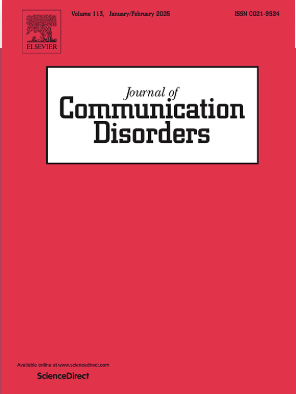Abstract:
Introduction: It is still under debate whether and how semantic content will modulate the emotional prosody perception in children with autism spectrum disorder (ASD). The current study aimed to investigate the issue using two experiments by systematically manipulating semantic information in Chinese disyllabic words.
Method: The present study explored the potential modulation of semantic content complexity on emotional prosody perception in Mandarin-speaking children with ASD. Two emotional prosody identification tasks were designed, in which different levels of prosodic and lexical complexity were incrementally included in four stimulus types: pseudo-words, semantically-neutral words, semantics-prosody congruent, and incongruent emotion words. Twenty-four children with ASD and twenty-two typically developing (TD) children were required to focus on the prosodic channel to label emotions while ignoring the semantic information.
Results: Emotionally neutral semantic content exerted little negative influence on the ASD group’s accuracy, while semantic-prosodic incongruence in emotion-label words had dramatic adverse impacts. Although distinct emotional prosody identification patterns were observed across the two groups, the confusion matrices suggested that the participants with ASD had developed similar patterns in identifying the five prosodies.
Conclusions: Children with ASD demonstrated a stronger adverse impact from the incremental complexity in the overlap between prosody and lexical cues. However, notably, they have tended to develop a typical emotional prosody recognition pattern. Thus, the poorer performance in the ASD group might originate from the possible developmental delay in suppressing semantic interference rather than from inherent emotion-specific impairments.

原载Journal of Communication Disorders, Volume 113, 2025
